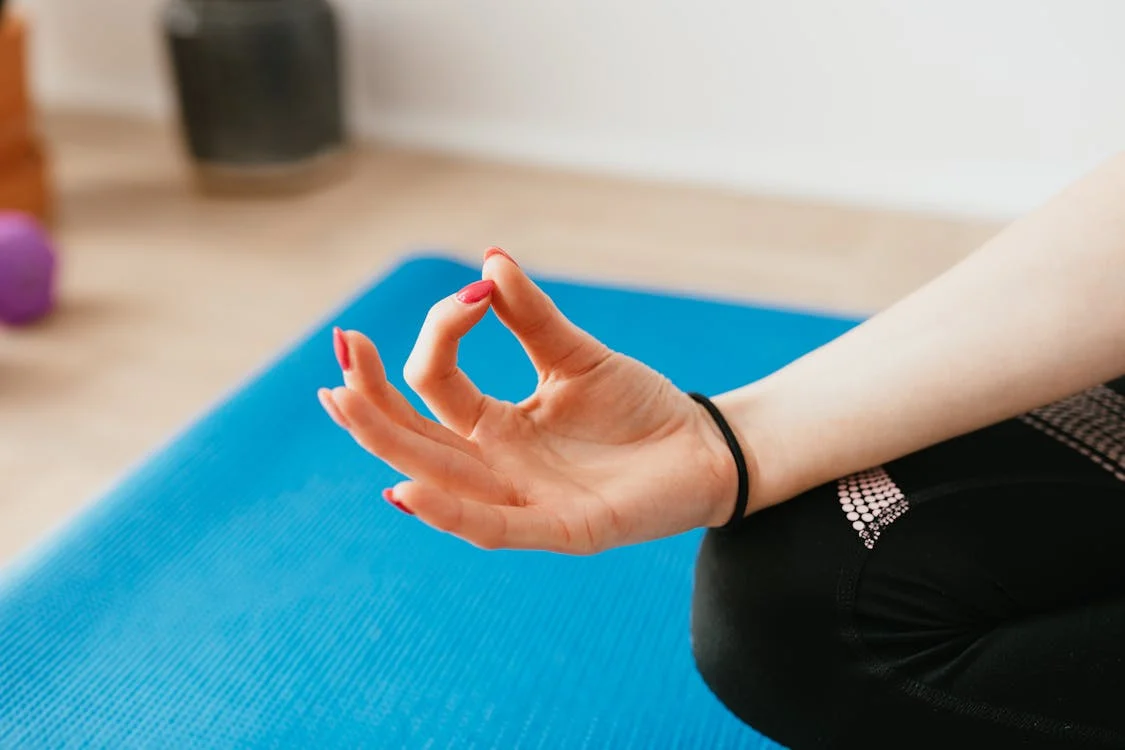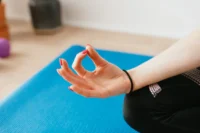
10 Jul A Senior’s Guide to Getting Started with Meditation
Meditation, an ancient practice, has become more popular in recent years, largely due to its myriad health benefits.
For seniors, meditation holds significant value. According to the Cleveland Clinic, it provides a natural method to manage stress, enhance mental clarity, and improve overall well-being. The National Institute on Aging emphasizes that as we age, maintaining both physical and mental health becomes increasingly crucial. Meditation serves as a simple yet effective tool to support these goals.
WebMD reports that meditation can help seniors sleep better. This practice can also help deal with symptoms associated with depression.
If you’re a senior looking to get started with meditation, here are a few expert tips to help you out.
Understanding the Benefits of Meditation
 Meditation, as explained by Mayo Clinic, has been shown to reduce stress, lower blood pressure, and improve sleep quality. For seniors, these benefits are particularly significant as they can help manage chronic conditions and promote a sense of calm and relaxation.
Meditation, as explained by Mayo Clinic, has been shown to reduce stress, lower blood pressure, and improve sleep quality. For seniors, these benefits are particularly significant as they can help manage chronic conditions and promote a sense of calm and relaxation.
Regular meditation practice can also enhance focus and cognitive function, which can be beneficial in maintaining mental sharpness as one ages. Furthermore, meditation promotes inner peace and enhances emotional health, thereby contributing to an improved overall quality of life.
Finding the Right Type of Meditation
There are numerous types of meditation, and identifying the one that suits you best is essential. Seniors can also benefit from exploring structured mindfulness programs like the MBSR 8-week course, which guides participants through practical exercises for stress reduction and emotional balance. Mindfulness-Based Stress Reduction (MBSR) has proven to be an effective approach for integrating meditation into daily life.
According to Mayo Clinic, mindfulness meditation involves paying attention to the present moment and can be practiced anywhere, at any time. Guided meditation entails following a recorded guide, which is especially beneficial for beginners.
Transcendental meditation uses a mantra or repeated phrase to help focus the mind. Try out various types of meditation to discover which one resonates most with you.
Creating a Comfortable Meditation Space
Creating a comfortable space for meditation is essential for establishing a regular practice. Select a quiet, clutter-free area where you can sit or lie down comfortably. Make it your permanent spot if you can as that will help you get familiar with your surroundings while you engage in meditation.
You might want to use cushions, a chair, or even a bed if sitting on the floor is uncomfortable. Soft lighting and soothing scents such as lavender can enhance your meditation environment as well.
In addition to setting up a physical space, it’s important to be aware of the mental health resources available to older adults. Meditation is a valuable tool for managing mental health, but you can only utilize it properly with the right resources at your disposal.
There are numerous mental health resources for aging adults that can provide assistance, including therapy, support groups, and helplines. These resources also highlight how seniors should meditate properly to gain the most benefits out of it.
Starting Small and Building Consistency
When starting a meditation practice, it’s crucial to begin with short sessions. Try to aim for a few minutes of meditation each day, such as sitting quietly and focusing on your breath for five minutes.
As you grow more accustomed to the practice, gradually extend the duration. What you need is consistency in your meditation practice as only that can help you experience the full benefits of meditation.
Whether it’s first thing in the morning or before bed, find a time that works for you and stick with it.
Frequently Asked Questions (FAQs)
Can seniors hurt themselves while meditating?
Seniors can typically meditate safely, but they should be mindful of their physical limitations. Opting for a comfortable position and avoiding prolonged sessions can help prevent discomfort or strain. Guided meditation or chair meditation can be especially beneficial for seniors.
Is meditation tiring for the elderly?
Meditation is typically not tiring for the elderly. In fact, it is often rejuvenating and relaxing. However, seniors should start with short sessions and gradually increase the duration to avoid any initial fatigue.
Does meditation give seniors mental peace?
Yes, meditation can provide seniors with mental peace. Meditation can play a vital role when it comes to dealing with stress, anxiety, etc., and promoting a sense of calm and well-being. Through regular practice, seniors can improve mental clarity, emotional stability, and overall quality of their lives.
Meditation offers numerous benefits for seniors, from reducing stress to improving mental clarity and emotional well-being. By understanding the benefits and how to meditate properly, seniors can successfully integrate meditation into their daily lives. Also, being aware of and accessing mental health resources for aging adults is crucial for addressing any serious mental health issues.
The information on MedicalResearch.com is provided for educational purposes only, and is in no way intended to diagnose, cure, or treat any medical or other condition.
Some links may be sponsored.
Always seek the advice of your physician or other qualified health and ask your doctor any questions you may have regarding a medical or cosmetic condition or treatment. In addition to all other limitations and disclaimers in this agreement, service provider and its third party providers disclaim any liability or loss in connection with the content provided on this website.
Last Updated on November 28, 2024 by Marie Benz MD FAAD
